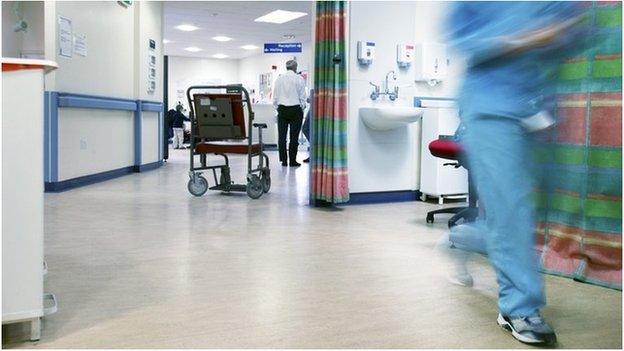Wales NHS: 'No need to apologise,' senior doctor says
- Published
Dr Alan Rees said the professionalism of staff is undermined by the attacks
Recent criticism of Wales' NHS is "abhorrent" and "politically motivated," one of its most senior doctors has said.
Dr Alan Rees, vice president of the Royal College of Physicians in Wales, said the health service "has no need to apologise" for the care it provides.
But he has admitted specific problems need to be addressed.
Prime Minister David Cameron claimed patients in Wales get a "second-class" NHS - Welsh ministers say he is wrong.
Dr Rees's comments come as a report, external by the Royal College has said the NHS in Wales, like elsewhere, is "struggling to cope" with a number of urgent challenges.
Spotlight
The row between the UK and Welsh governments intensified recently when the Daily Mail newspaper published a series of reports which claimed to expose poor care and serious failings in Wales.
But Dr Rees says it is ridiculous to claim that the Welsh NHS is in some way substandard.
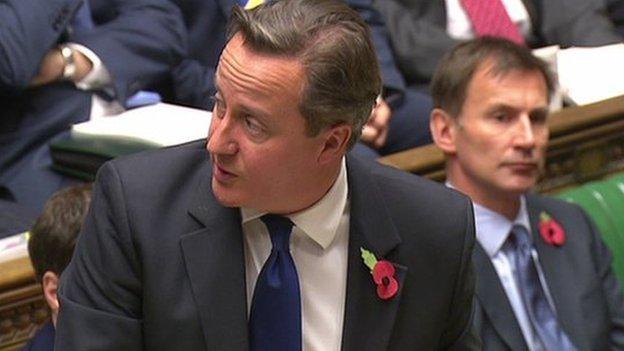
David Cameron and Jeremy Hunt have made repeated attacks on the performance of the Welsh NHS
He said: "I was very disappointed. I thought it was politically motivated and undermined the professionalism of doctors and nurses who work very hard in the NHS in Wales.
"If people start to believe it - I think it's unwarranted and could be dangerous.
"I am sure there are isolated examples whereby people haven't had the best health-care they would have wished for and I'm sure that's true but not in the generality.
"I do not see any need to apologise for the level of care we provide in Wales compared to what is provided over the border in England.
"So there are lots of complex issues but to try to reduce it to one or two simple point-scoring things is unfair."
But Dr Rees has not accepted the NHS is struggling to cope with a number of urgent challenges:
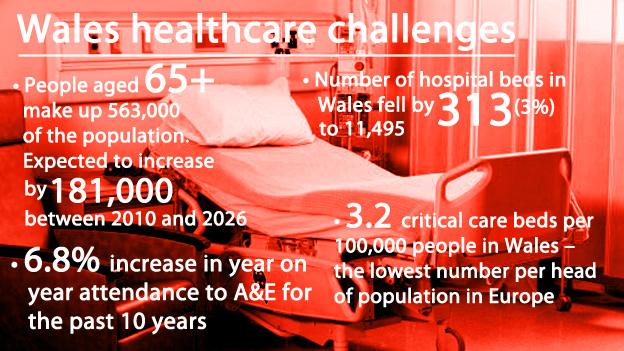
However, the Royal College has said many of these problems are common across the UK, and particular circumstances in Wales means the NHS here needs to develop specific and innovative solutions.
For example the report argues that the rural nature of Wales means specialist services are spread too thinly, which has a negative effect on the recruitment and training of doctors.
'Political football'
The report has also warned some patients, particularly elderly, are being "failed by a system that is ill-equipped and seemingly unwilling to meet their demands".
Health boards across Wales are currently implementing controversial plans which include centralising some specialist care in fewer large hospitals.
But the plans have caused caused controversy in some areas and were opposed by campaigners and some local politicians.
The Royal College argues there needs to be further and deeper changes to make the Welsh NHS sustainable.
Dr Rees said: "The danger is the Welsh NHS could become a political football.
'Listen'
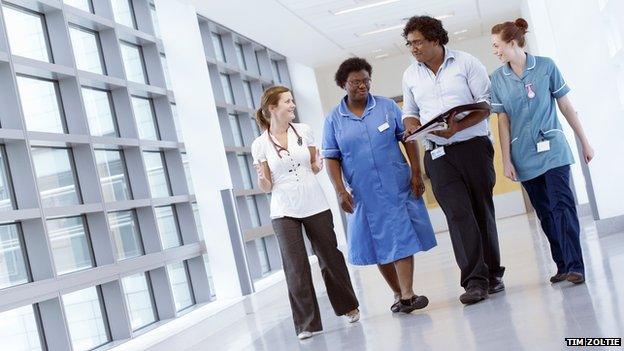
The report calls for a Welsh medical workforce and training strategy to be developed
"So we're telling politicians to listen to the clinical consensus and together we can achieve what, we want which is better healthcare."
A Welsh government spokesman said: "The decisions we make are based on the latest clinical evidence and advice available and puts the patient first with the aim of improving the healthcare of the nation.
"This includes our new four-year plan to improve primary care services so the vast majority of NHS care is planned and provided in the community, closer to people's homes and ultimately avoiding inappropriate and unnecessary hospital admissions whenever possible."
The Royal College of Physicians represents 30,000 medical doctors world-wide and has 800 members in Wales.
- Published7 November 2014
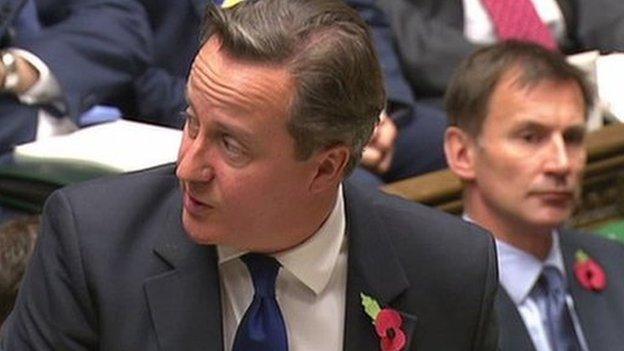
- Published22 October 2014
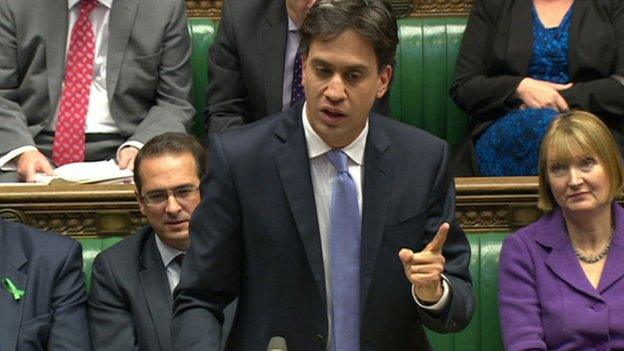
- Published22 October 2014
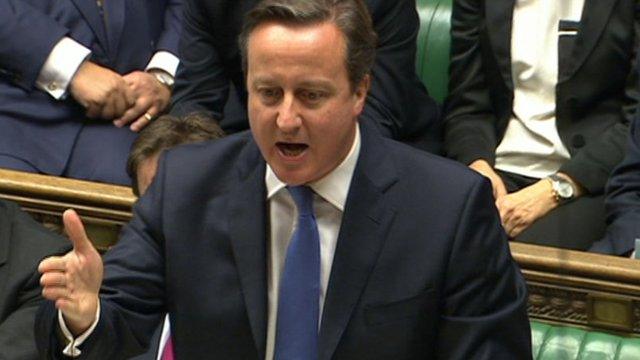
- Published21 October 2014
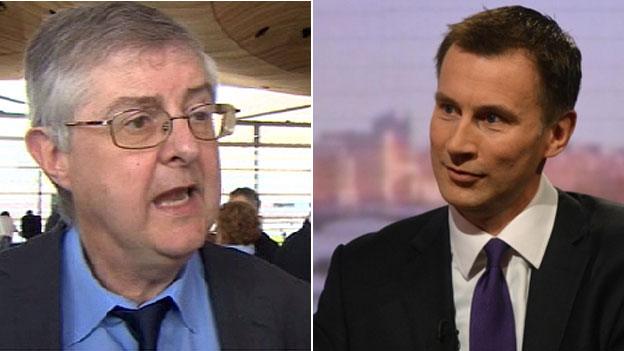
- Published21 October 2014
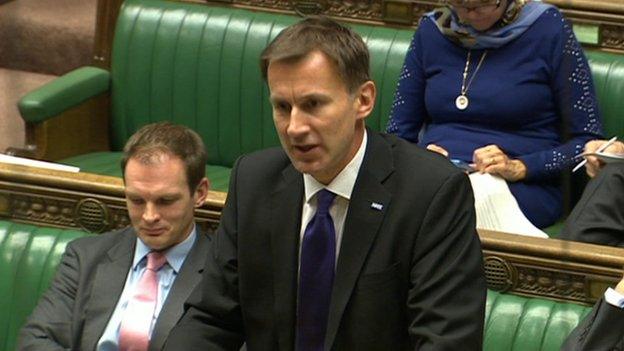
- Published21 October 2014

- Published21 October 2014
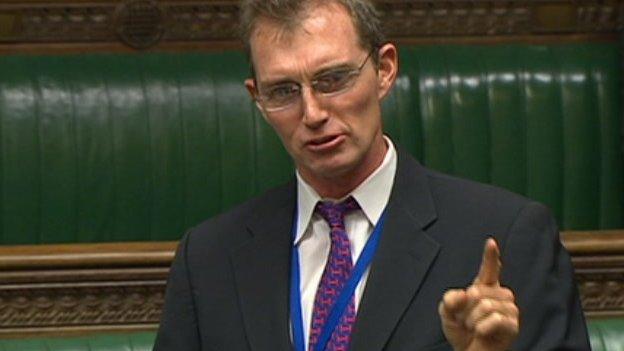
- Published20 October 2014
